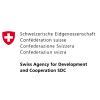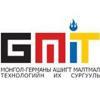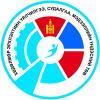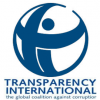The coronavirus disease (COVID-19) pandemic has hit hard the economy, business enterprises, and employment, and has amplified development challenges in Mongolia. While the pandemic featured the importance of research and development (R&D) and innovation globally and the potential of technologies across different sectors and activities, Mongolia’s R&D and innovation performance suffers from years of underinvestment. In particular, the country lacks systems for promoting R&D and innovation and developing skills and human resources necessary to drive R&D and innovation. As part of the effort to increase R&D and innovation and develop skills and human resources for R&D and innovation, the government approved the national program on the development of research-based universities in 2018 and another program on the development of STI human resources in 2019.
Against this background, the government has requested support from the Asian Development Bank (ADB) to enhance interdisciplinary research and graduate education, and technology transfer and commercialization and strengthen collaboration among six key state-owned universities, public research institutes (PRIs), and industry as the foundation for developing research universities which can cultivate highly skilled workers (Research University Development Project). The project will have three outputs: (i) policies and institutions for enhancing graduate education and research to international standards developed; (ii) systems for supporting research and research commercialization developed; and (iii) centers of excellence that address Mongolia’s development challenges successfully operated.
Under the output (iii), the project will support, through performance-based grants, the establishment and operation of competitively selected 2–5 centers of excellence by gathering top-level researchers and graduate students in their focus areas from different higher education institutions (HEIs), PRIs, and industry in Mongolia, and partnering with institutions in and outside Asia and the Pacific region. The centers of excellence are expected to demonstrate excellence in institutional management, research-focused interdisciplinary graduate education, research, technology transfer and commercialization, and gender equality. Each center of excellence will help Mongolia capitalize on its socioeconomic development opportunities and focus on one of the following five development challenges: (i) smart services and products; (ii) natural and bioresource management and processing; (iii) clean energy and energy efficiency; (iv) lifelong and adaptive learning; and (v) health.
In close consultation with MES, the six key state-owned universities, the consulting firm, and ADB, IRIM’s team of resource persons will design, prepare, facilitate, document, and report on sub-National Forum workshop sessions at the National Forum. The team will comprise five facilitators and ten sub facilitators. MES and the six key state-owned universities nominated five moderators and lead universities to work with IRIM’s team to prepare and organize the following sub-National Forum workshops: (i) workshop 1: smart products and services; (ii) workshop 2: natural and bioresource management and processing; (iii) workshop 3: clean energy and energy efficiency; (iv) workshop 4: lifelong and adaptive learning; and (v) workshop 5: health. Each sub-National Forum workshop will consist of three sessions and joint reporting session as part of the plenary closing session of the National Forum.
- Design and Preparation of Sub-National Forum Workshop Sessions
- Facilitation and Documentation of Sub-National Forum Workshop Sessions
- Reporting on Sub-National Forum Workshop Sessions
Facebook page for the National Forum: (20+) Судалгааны их сургууль хөгжүүлэх төсөл:Хөгжлийн сорилт ба шийдэл | Facebook

Related projects
-
Leveraging Science and Tradition in DRR in Mongolia III (LTS3), Final Evaluation
Client
International Organization for Migration
.png)

.png)
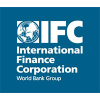
.png)
.png)
.jpg)


